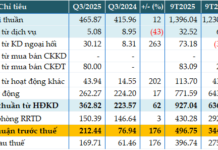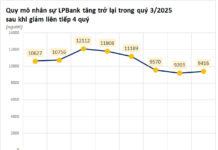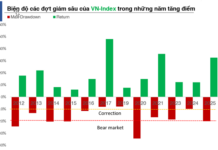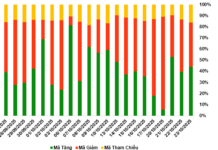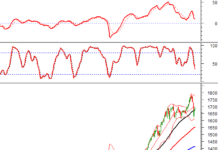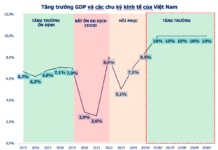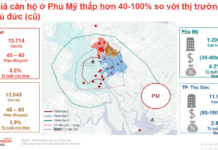Four Options
Ho Chi Minh City’s Department of Natural Resources and Environment has presented four land price options for the Standing Committee of the Municipal Party Committee’s consideration and approval. These options were previously analyzed by the Party Executive Committee of the Municipal People’s Committee in collaboration with relevant departments, district-level People’s Committees, Thu Duc City, and consulting units.
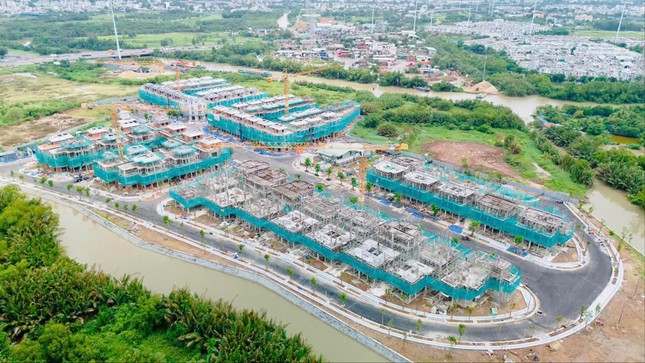
Draft land price table with significant impact on various stakeholders
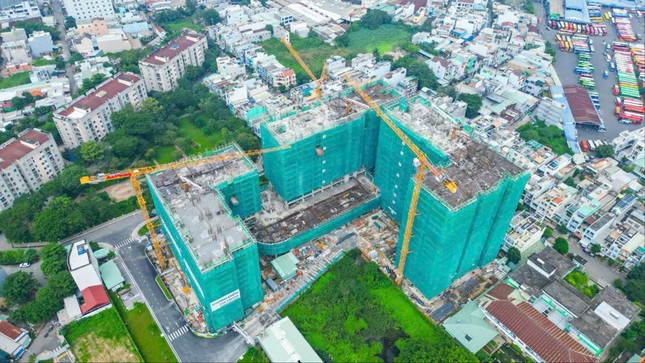
Higher input costs due to increased land prices will result in higher housing prices, creating difficulties for homebuyers.
The first option proposed by the Department is to maintain the current land price table as per Decision No. 02/QD-UBND. However, this option has limitations as the land prices in Decision No. 02 are capped by the government’s decree on land price frames (with a maximum of VND 162 million per square meter for special urban areas), leading to a reduction compared to market prices.
Additionally, land prices under Decision No. 02 cannot be increased due to the price frame restrictions, resulting in the need to inherit land prices from 2014, as issued in Decision 51/2014/QD-UBND dated December 31, 2014. Land prices have not been adjusted for the past 10 years to align with the actual land prices in Ho Chi Minh City. As a result, if this option is chosen, there will be a significant discrepancy between the adjusted land price table (by multiplying the land prices in Decision No. 02 with the land price adjustment coefficient in Decision 56) and the actual compensation prices, which is inconsistent with the city’s land price reality and contradicts Article 257, Clause 1 of the 2024 Land Law.
The third option suggests adjusting the land prices of roads where resettlement is planned to be in line with the actual land prices. For roads listed in Decision No. 02, the prices would be multiplied by the land price adjustment coefficient in Decision 56. However, this option has limitations and may create inequality among land users.
Finally, the fourth option proposes adjusting the land price table to align with the local reality, as stipulated in Article 257, Clause 1 of the 2024 Land Law. The land price database is refined from various sources, including compensation prices, resettlement land prices, specific land prices approved by People’s Committees at different levels, actual transfer prices from land registration agencies and tax authorities, to update and adjust the land price table. According to the Department, this option complies with Article 257, Clause 1 of the 2024 Land Law and is consistent with Ho Chi Minh City’s land price reality.
Mr. Nguyen Toan Thang, Director of the Department of Natural Resources and Environment of Ho Chi Minh City, emphasized that the draft land price table significantly impacts organizations and individuals using land in the city. Therefore, the city is proceeding with caution. Even though the public opinion collection period ended on July 26, the city organized additional conferences to listen to and receive feedback on this matter. The Department will thoroughly consider all opinions. The independent appraisal council will evaluate these contents and submit them to the Department of Justice before presenting them to the Municipal People’s Council. According to regulations, the land price table serves as a basis for calculating financial obligations for 12 subjects. The adjusted land price table will affect these subjects when fulfilling financial obligations such as land use fees, taxes, charges, and administrative violation fines.
Impact on Housing Prices
According to Ms. Nguyen Thi Hong Van, Deputy Director of Savills Hanoi’s Valuation and Financial Consulting Department, the most significant impact of the 2024 Land Law on the real estate market is the government’s decision to abolish the land price frame and empower local authorities to determine annual land prices based on market prices instead of the previous five-year cycle. “However, aligning compensation prices with market prices, along with providing comprehensive compensation support, will increase project investment costs, leading to higher real estate prices. Savills observed no new supply below VND 45 million per square meter in the second quarter of 2024. Since 2020, the primary supply of Grade C apartments has decreased by 45% annually. In the short term, housing prices, especially apartment prices, will continue to rise due to limited new supply in the market,” said Ms. Van.
Mr. Le Hoang Chau, Chairman of the Ho Chi Minh City Real Estate Association (HoREA), affirmed that the draft land price table would impact the cost of compensation and site clearance as land users would demand higher compensation than before. Higher input costs create a ripple effect, increasing housing and rental prices and land and workshop lease costs. This negatively affects social housing projects where enterprises agree to transfer land use rights to implement projects.
Similarly, Mr. Ngo Duc Son, CEO of DRH Holding Joint Stock Company, believes that the new land price table will significantly affect individuals when fulfilling financial obligations, especially when transferring land use purposes or obtaining land use certificates for the first time. For businesses, higher land prices mean higher input costs, which will be reflected in higher output prices, directly impacting buyers. However, whether direct or indirect, it will influence business operations.
Speaking to Tien Phong , Mr. Vo Hong Thang, Investment Director of DKRA Group, confirmed that the new land price table would increase site clearance and compensation costs for real estate businesses as it moves closer to market prices. Land use fees and associated taxes and fees will also rise. These factors contribute to higher real estate prices in the future.
On a positive note, Mr. Thang mentioned that the new land price table demonstrates the effectiveness of the upcoming 2024 Land Law. Specifically, having a land price table will shorten the project legal implementation period and resolve legal obstacles. In terms of site clearance and compensation, aligning with the market will make it easier for businesses to negotiate with residents.
Currently, Ho Chi Minh City faces challenges and obstacles in handling administrative procedures related to financial obligations during the transition period from August 1 to the time when the land price table is adjusted according to Article 257, Clause 1 of the 2024 Land Law. To prevent bottlenecks in processing dossiers related to financial obligations for land, the Ho Chi Minh City People’s Committee has proposed that the Prime Minister direct the Ministry of Natural Resources and Environment and the Ministry of Finance to provide guidance and resolve the mentioned difficulties. This will provide the city with a basis for implementation.
2023 Remittances Surpass Half of Ho Chi Minh City’s Budget Revenue
As part of the Homeland Spring 2024 program in Ho Chi Minh City, this morning (2/2), the overseas Vietnamese delegation had a tour of the City Hall and met with city leaders.







